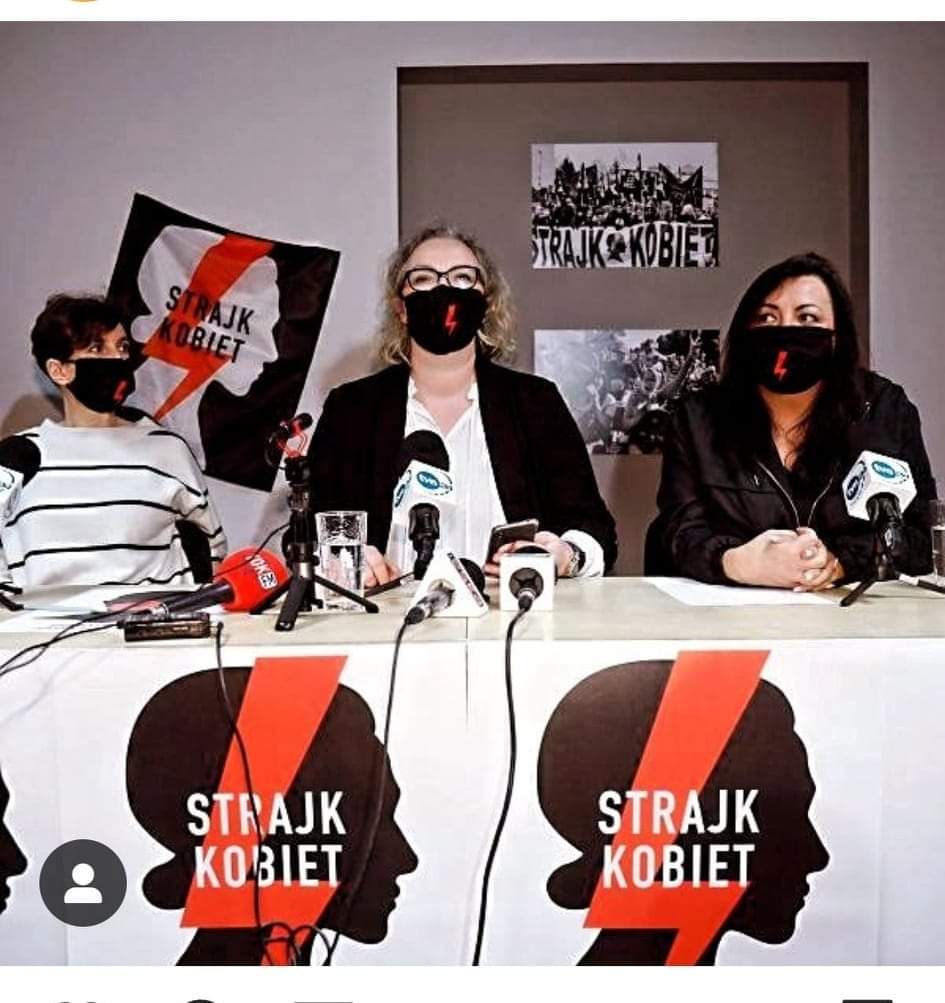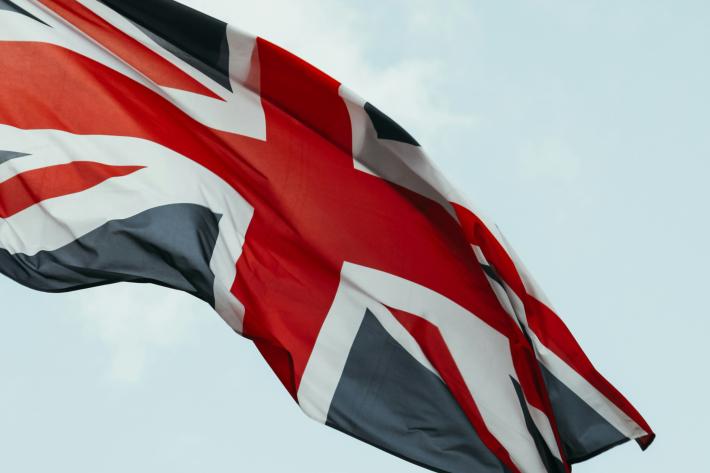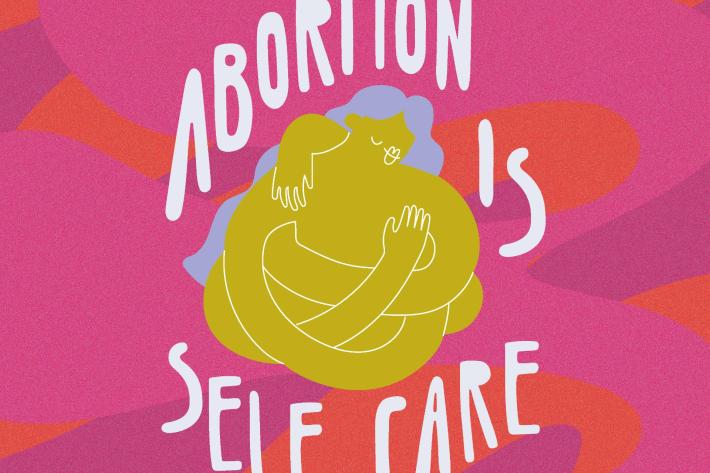
Spotlight
A selection of news from across the Federation

European Commission's new Women's Rights Roadmap includes SRHR—Now we need action
On 7 March, the EC released a new political declaration committing to uphold and advance women's rights. We welcome the inclusion of SRHR and other key topics. Now impactful actions are needed.
Filter our news by:


| 03 October 2024
Poland: Acquittal of women's rights defenders a relief, but the trial was unjust
Three Polish feminists on trial for pro-abortion protests have been found not-guilty. Although positive news, this is not a complete win for activists around the world. Marta Lempart, Klementyna Suchanow and Agnieszka Czerederecka-Fabin - three leading women’s rights defenders from the Polish Women's Strike were facing eight years in prison in Poland for exercising their right to peaceful protest. At today’s trial they were found not guilty. Though the not guilty verdict is a relief, we can’t ignore the fact that this trial never should have happened in the first place. These women’s rights defenders were unfairly targeted because of their work, with the prosecution attempting to use the courts as a tool of intimidation. Defending reproductive rights is not a crime. It is deeply troubling that they were subjected to a sham trial that not only robbed them of time, energy and money, but also affected their mental well-being. Cases like this are designed to silence activists. They are a dangerous attack on fundamental human rights and democratic values. In future, we urge the Polish government, and all governments, to focus on protecting rights, not prosecuting those who defend them. Marta Lempart said "I'm looking forward to going back to work. Thank you for all the solidarity from the international community."

| 01 October 2024
Polish Women's Strike protests’ organizers on trial
Date: 3.10.2024 Time: 12.00 Courtroom: 224 Location: District Court in Warsaw, Solidarności 127 Press briefing after the verdict. The criminal case against Polish Women's Strike pro abortion protests’ (2020) leaders is finally coming to an end in the District Court in Warsaw, Poland. Marta Lempart, Agnieszka Czerederecka and Klementyna Suchanow are charged under Article 165 of the Penal Code (endangering the public by organizing protests) and Women's Strike leader Marta Lempart is additionally charged under Article 226 and Article 255 of the Penal Code. All three women face up to 8 years in prison. The announcement of the verdict will take place on October 3rd at noon in the District Court in Warsaw at 127 Solidarności Avenue (room: 224). This date is significant and symbolic for the entire movement that the Polish Women's Strike is. It was on October 3rd, 2016 that the Women's Strike organized the first mass protests in Poland in defense of abortion rights, which went down in history as Black Monday. At that time, women took to the streets of more than 160 cities and towns dressed in black in protest against the tightening of abortion law in Poland. On the 8th anniversary of the first Polish Women’s Strike protest (2016), activists will hear the verdict for their involvement in the 2020 100-days stress protests, brutally suppressed by the state police and secret services. It will be a verdict for their years of fighting in the streets, for the many days and nights spent protesting, in police cauldrons and in police detention. Judgment for their courage and determination, for their eyes burning with pain from the police gas, for their arms broken during the demonstrations, their spines physically damaged from the police batons. The judgment will therefore be symbolic not only for the anniversary of the Women's Strike, but above all for the fight for women's rights in contemporary Poland. The verdict will show which way we are heading - towards the shameful direction of maternity wards where women are dying, or towards the civilized part of Europe. Marta Lempart: Please be with us on that day. It is important that not only we, but also others who are still being dragged through the courts, know that they are not walking alone. Whatever happens this October 3rd or afterwards. See you there! Media contact: +48 577 099 077 Marta Lempart [email protected]
| 17 February 2022
Civil society asks Council of the EU to act on rule of law collapse in Poland
As the EU Council prepares to discuss the rule of law situation in Poland at its upcoming meeting on 22 February 2022, FIDH and other civil society organisations from Poland and across the EU draw EU ministers’ attention to recent, alarming developments, pointing to a severe and steady decline in the respect for EU values in the country. These include attempts to undermine judicial independence, refusal to comply with European court’s decisions, attacks on media freedom, and restrictions on civic space. Rule of law deficits are having negative impacts on human rights, particularly on the sexual and reproductive rights of women and on LGBTI people’s rights. In the letter, the signatory organisations urge EU governments to address these developments at next week’s meeting, to adopt recommendations that Polish authorities will have to implement within a clear time frame and/or to hold a vote to establish that the EU core values of respect for democracy, the rule of law and human rights have been seriously breached in Poland. Poland has been under scrutiny by the Council since December 2017, when the European Commission triggered the procedure laid down in Article 7.1 TEU on account of the "clear risk of a serious breach" of the values referred to in Article 2 TEU in the country. Despite the many actions undertaken by EU institutions since 2017, the Polish government has continued to systematically infringe upon EU standards and ignore warnings and decisions from the European Commission, the European Parliament, and the Court of Justice of the European Union. Immediate, effective, and concerted action by the Council is vital to halt attacks against Article 2 principles and reaffirm that rule of law and human rights violations have no place in the EU.

| 08 March 2022
Regression on Abortion Access Harms Women in Poland
26 January 2022 – One year after the ruling of Poland’s discredited Constitutional Tribunal banning access to abortion in almost all circumstances took effect, its devastating impact on the lives of women and all those in need of abortion care continues. The ruling has increased the extreme barriers women seeking access to abortion face and has had tragic consequences for many of them and their families. Since the ruling took effect on 27 January 2021, more than 1000 women have turned to the European Court of Human Rights in an effort to vindicate their rights, challenging Poland’s highly restrictive abortion law and seeking justice. These groundbreaking cases mark the first direct challenges to be filed before the European Court against Poland’s abortion law and the 2020 Constitutional Tribunal ruling. The applicants claim that the Polish abortion law causes them grave harm and violates their rights to privacy and freedom from torture and other ill-treatment. The Court is expected to begin ruling on some of these cases: K.B. v. Poland and 3 other applications; K.C. v. Poland and 3 other applications; and A.L.- B. v. Poland and 3 other applications. Nine leading international human rights organizations have filed third-party interventions to the European Court of Human Rights in these cases, including Amnesty International, the Center for Reproductive Rights, Human Rights Watch, the International Commission of Jurists (ICJ), the International Federation for Human Rights (FIDH), the International Planned Parenthood Federation European Network (IPPF EN), Women Enabled International, Women’s Link Worldwide, and the World Organisation Against Torture (OMCT). The interventions provide evidence and analysis drawing on international human rights law, comparative European law and guidelines from the World Health Organization. They outline the profound implications that highly restrictive abortion laws have on the lives and health of women and girls of reproductive age. Restrictive abortion laws such as Poland’s are contrary to international and European human rights standards and public health guidelines. They compromise women’s freedom, dignity, health, and lives. Our organizations’ interventions seek to highlight critical human rights aspects of such restrictive laws, and we are proud to support efforts to hold Poland accountable for these ongoing human rights violations, the organizations said. Background Poland has one of Europe’s most restrictive abortion laws. Together with Malta, it is one of only two European Union Member States that has not legalized abortion on request or broad social grounds. In Poland, abortion is only permitted in situations of risk to the life or health of a pregnant woman, or if a pregnancy results from rape. In practice, however, it is almost impossible for those eligible for a legal abortion to obtain one. Every year thousands of women leave Poland to access abortion care in other European countries, while others import medical abortion pills or seek extra-legal abortion in Poland. Polish women, particularly those in difficult socio-economic situations, have to depend on the crucial help from civil society organizations, with often limited resources. On 22 October 2020, Poland’s discredited Constitutional Tribunal ruled that abortion on grounds of “severe and irreversible fetal defect or incurable illness that threatens the fetus’ life” was unconstitutional. The ruling followed a case filed by members of the Polish Parliament and formally supported by the Prosecutor General. The ruling came into force on 27 January 2021. Both the European Court of Human Rights and the European Commission have found that the Constitutional Tribunal does not meet fair trial requirements due to its lack of independence from the legislative and the executive powers. The ruling eliminated one of the only remaining legal grounds for abortion under Poland’s highly restrictive law and its entry into force means that there is now effectively a near-total ban on abortion in Poland. Previously, over 90 percent of the approximately 1,000 legal abortions annually performed in Poland were on this ground. The ruling came as the COVID-19 pandemic restrictions made travel for abortion care prohibitively difficult and costly. It spurred the country’s largest public protests in decades, led by women human rights defenders. Activists and women’s rights organizations report that the ruling is having a significant chilling effect as medical professionals fear repercussions even in situations where abortion remains legal. Women human rights defenders and civil society organizations advocating for the ruling to be overturned and for reform of Poland’s abortion law have faced threats of violence and several protestors have been prosecuted. Read the third-party submissions here. For more information about the cases filed by 12 Polish women see: K.B. v. Poland and 3 other applications K.C. v. Poland and 3 other applications A.L.- B. v. Poland and 3 other applications For more information on the developments following the Tribunal’s ruling see e.g.: https://ec.europa.eu/commission/presscorner/detail/en/ip_21_7070 For more information, please contact: For the International Planned Parenthood Federation European Network, Irene Donadio: [email protected], +32 491 71 93 90, Twitter: @ippfen

| 06 January 2022
Polish Parliament votes on anti-rights bills
Reaction to vote to establish the Polish Institute of Family and Demography IPPF EN is appalled to learn that the lower chamber of the Polish parliament has today given the green light to establish the Polish Institute of Family and Demography. This seemingly innocuous initiative is anything but. It would allow for increased and unnecessary data processing on people’s reproductive health and expanded interference by the state in people’s family lives. Prosecutorial powers would be granted to the Institute’s President, allowing them to interfere in or initiate court and administrative proceedings that fall under the scope of family or children’s rights, such as parental or adoption rights. Polish activists fear this could be used against LGBTQI families by allowing the President to apply for the removal of parental rights from LGBT parents, for example. One look at the track-record of the current presidential-hopeful indicates this fear may be founded: it is Bartłomiej Wróblewski, a PiS MP who submitted the motion to Poland’s Constitutional Tribunal that led to the virtual ban on abortion. The Institute would also be invested with expanded data-processing powers. It would be allowed to “process any information, including personal data, necessary for the performance of its statutory tasks,” although particular attention would be paid to data on marriage and fertility. Again, activists fear that this is an attempt to introduce a system of surveillance on people’s private lives, particularly as it coincides with a recent initiative by the Health Ministry to establish a pregnancy registry, which expands data-gathering on pregnant people. If deemed ‘necessary’ by the Institute, it could process data on pregnancies, contraceptive access, emergency contraception and pregnancy loss. Activists point to how the latter has been used with devastating effect against women in countries with draconian abortion laws, where women who have suffered miscarriage are accused of accessing abortion, and prosecuted.

| 08 March 2022
Poland debates prison terms for abortion in new blow to women’s rights
Joint press release by IPPF EN and Civicus. The Polish Parliament is set to discuss an anti-abortion bill from a religious ultra conservative group to jail women who access abortion and criminalize anyone who helps them do so, including family members, friends and doctors. The new anti-abortion bill - proposed by Pro - The right to life Foundation - who also put forward a bill two years ago that would criminalize anyone who informs young people about sexuality and relationships - will be discussed in the Polish Parliament's lower chamber during a sitting on 1-2 December. The initiative comes one month after a woman named Izabela - died as a result of Poland’s restrictive abortion law, triggering widespread protests. The bill aims to enshrine extremist doctrine in law by establishing harsh prison terms in cases of abortion. Despite Izabela’s death and the recent protest about the current virtual abortion ban, the bill’s backers would support imprisoning women for up to 25 years for abortion and 5 years in case of miscarriage - considered ‘manslaughter’. The wording of the proposal could even lead to life imprisonment if the pregnant woman were charged with ‘aggravated murder’. In addition to introducing prison sentences, the proposal would remove the remaining, extremely limited, exceptions to the ban which currently allow abortion in cases of rape, incest and endangerment of the women’s life or health. This would further paralyse doctors whose hands are already tied in cases of severe foetal impairment. “This is a nightmare scenario for women in Poland because the new bill bears striking similarity to El Salvador’s abortion ban, under which women are incarcerated if they have abortions or miscarriages. If Poland takes such a cruel decision it would simply devastate women and families’ lives,” says Irene Donadio of the International Planned Parenthood Federation European Network. It will be relatively straightforward for the Law and Justice party (PiS) and its allies to secure the adoption of the new bill at any time because they control the lower chamber of the parliament and have influence over the Constitutional Tribunal.* In another shocking development, ahead of the Parliamentary sitting, Poland’s health ministry has announced that the government may force all health care professionals to register every pregnancy. “It’s obvious that this is a well orchestrated plan to put pregnant women under surveillance and then to prosecute them if they decide not to continue a pregnancy or even if they suffer a miscarriage. This insidious strategy will force doctors to inform on their patients and will create terror among pregnant women and those who try to help them to access vital care” continues Donadio. The Polish government's support of these initiatives has put it on a collision course with the EU. Human rights activists hope the EU will continue to apply pressure ahead of an upcoming state of play on the rule of law in Poland. “We call on the Council of the EU to hold the Polish government accountable for violations of the rule of law and of women’s human rights. The General Affairs Council meeting on December 14 will set the tone for next steps with regards to Poland. We urge the EU Member States not to shy away from taking steps to make sure breaches of the rule of law and vast human rights abuses are not brushed under the carpet,” says Aarti Narsee, Civic Space Researcher Europe, Central Asia, MENA for CIVICUSMonitor. Press Contact: International Planned Parenthood Federation European Network, in Brussels, Irene Donadio (English, Italian, French, Spanish): +32-491-071-93-90; or [email protected]. Twitter: @ippfen Notes to the editor: * The Law and Justice party (PiS) and its allies have an absolute majority in the lower chamber of the Polish Parliament. This means that the bill could be adopted on a fast track even if all the parties in opposition try to stop it or amend it in the Senate (where the ruling party does not have the majority). The opposition could delay the process for a month in the Senate but they cannot stop the adoption in a second reading in the lower chamber. If the parliamentarians of the ruling party want to disassociate themselves from this new attack on women’s rights they can flout the rule of law and send the bill to the politicized Constitutional Tribunal, having it adopted via the judiciary as they did last year. For more information on abortion care in Poland, see IPPF EN’s resources, including stories of women human rights defenders. This new anti-abortion bill mirrors a proposal in 2016 that was met with massive public protests, forcing the government to abandon it. At that time, even the Polish Catholic Church witheld its support for the proposal because it would have jailed women for accessing abortion. Yet, in spite of the obvious lack of support both from the public and bishops, this latest ultra conservative bill is much harsher, mandating considerably higher prison sentences. A bill proposing the creation of the "Family and Demography Institute" will be discussed during the same sitting of the lower chamber on December 1-2. The Institute is expected to be led by right wing fundamentalist parliamentarian Bartłomiej Wróblewski, the author of the motion to the pseudo - Constitutional Tribunal which has resulted in the current virtual ban on abortion. The head of the institute will be able to intervene as a prosecutor in court proceedings and in administrative processes regarding divorce or adoption filings (could decide over whether or not to grant a divorce and will be able to bring cases against LGBT parents - demanding that they be deprived of their parental rights). The head of the Institute will have access to data collected by any entity in Poland regarding pregnancies and miscarriages. The goal of the institute is to increase Poland's birth rate.
















